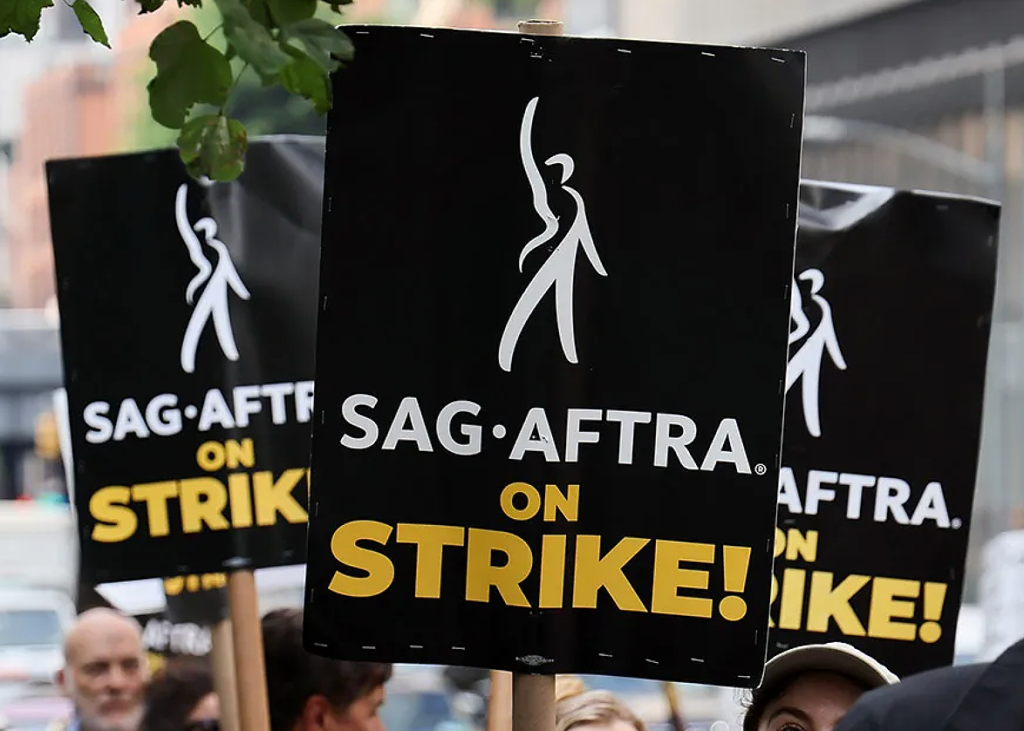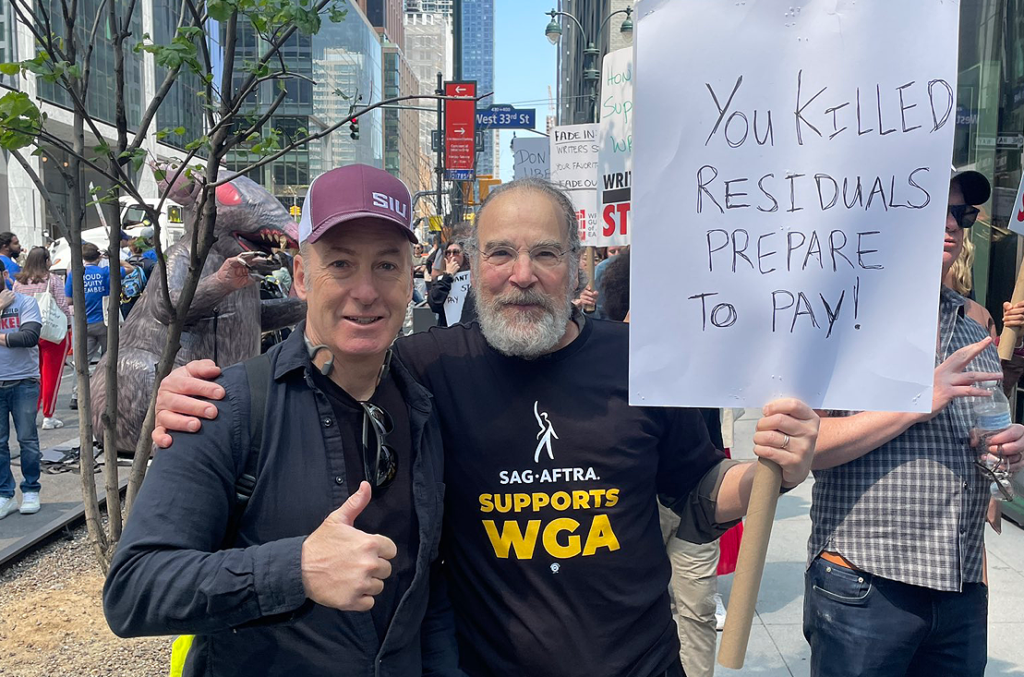
After a 100-day impasse, Hollywood studios/streamers will resume negotiations for a new contract with striking SAG-AFTRA (Screen Actors Guild) actors on Tuesday.
Related: It’s a Deal: Hollywood Writers Reach Tentative Agreement on September 24th To End Strike
The North American film industry had hoped that SAG contract talks would follow the template of the WGA (Writers Guild of America)’s deal reached in September after their own debilitating 148-day strike and that actors and crews (including those in Canada) would be back to work before the end of the year.
But SAG’s October contract talks — with Netflix’s Ted Sarandos, Disney’s Bob Iger, Warner Bros. Discover’y’s David Zaslov and NBC Universal’s Donna Langley in attendance — broke down after only five sessions as the studios/streamers suspended negotiations.
The major sticking point for the AMPTP (Alliance of Motion Picture and Television Producers) was SAG’s streaming proposal. Rather than the WGA’s success-based streaming bonus on top of fixed residuals, SAG wants a set fee of $1 per streaming subscriber with the funds divided up between ALL the actors who appear on those platforms.

Anxiety in Hollywood ramped up over the breakdown in talks and a group of A-list actors — George Clooney, Ryan Reynolds, Scarlett Johansson, Kerry Washington, Tyler Perry, Bradley Cooper, Meryl Streep, Ben Affleck, Jennifer Aniston, Reese Witherspoon, Emma Stone, Laura Dern and Robert De Niro — approached their union with a proposal to fund lower-earning actors over three years out of their own pockets which the SAG leadership said would not help them get a deal from the AMPTP.
Some A-list actors also questioned SAG-AFTRA priorities after the guild issued a new strike directive advising its members not to dress up for Halloween as characters from struck companies like Barbie and Wednesday, saying it made the union look petty when the goal should be to get back to the bargaining table.
Ryan Reynolds mocked it on X (formerly Twitter).
I look forward to screaming “scab” at my 8 year old all night. She’s not in the union but she needs to learn
— Ryan Reynolds (@VancityReynolds) October 19, 2023
But their ire was directed at the studios/streamers, too:
George Clooney told them to “At least get in the room. Don’t take a vacation.”
With pressure on both sides to get a deal done, Disney’s Bob Iger called SAG-AFTRA’s Duncan Crabtree-Ireland today about resuming talks on October 24th.
At issue:
The big shift into streaming made this year’s contract talks an inflection point for Hollywood creatives. The actors’ demands are similar to those of the writers :higher pay, higher streaming residuals and protection from generative artificial intelligence (AI) replacing the work of their members (by prohibiting an actor’s digital likeness and voice from being used without consent or pay).
The actors guild also wants a return to live casting sessions ending the pandemic trend of self-taped auditions.
At some point, the jig is up. You cannot keep being dwindled and marginalized and disrespected and dishonored. The entire business model has been changed by streaming, digital, AI. This is a moment of history. If we don’t stand tall right now, we are all going to be in trouble. — SAG-AFTRA president Fran Drescher.
Since SAG-AFTRA took the picket lines on July 14th, the actors guild has put a lot of pressure on the 8 negotiating studio/streamers (Disney, Netflix, Warner Bros. Discovery, NBC Universal, Paramount, Sony, Amazon and Apple) aka the struck companies by allowing its members to work on other productions as long as those companies sign an interim agreement.
Scores of independent production companies have signed SAG-AFTRA interim agreements.
For example, Hallmark signed a SAG-AFTRA interim agreement that allowed guild actors to work on season 11 of When Calls the Heart, which has been filming in Vancouver/Langley since mid-July.
Minimum wages:
SAG is not satisfied by the 5% bump in minimum wages in the first year of the contract obtained by the Directors Guild of America and the WGA, instead asking for 11%. in the first year.
Streaming Residuals:
SAG-AFTRA started out wanting 2 percent of the total revenue generated by streaming shows but recently pivoted to payments for each streaming subscriber after the AMPTP rejected the revenue proposal outright.
Artificial Intelligence:
SAG-AFTRA is worried that A.I. can be used to create digital replicas of their likenesses (or that performances could be digitally altered) without approval or compensation.